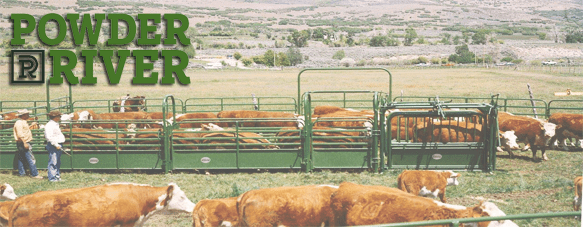
OFI 666: What Do Livestock Do For Your Mental Health?
Coming Home From A Trip
I just returned home from an epic, 8 day trip to Florida, which you have all heard all about. I came home to a broken electric fence, female goats working their way under another fence and getting in with the bucks (early kids this year) and five chickens that had been killed by an unknown assailant – probably a weasel. Plus I started irrigating the morning after I got back.
The trip was necessary, and I don’t find fault with any of our farm sitters on this stuff. These were just the culmination of normal, small things that happen on a farm all coming together at once. So, while I get a lot of peace from living on our farm, being out of the city and watching our livestock; for the first few days back it is just constant work and chaos.
Today’s Topic
So, here it is, Monday morning. I got my chores done early, fixed a blow out in my irrigation line and got all of the rest of the irrigation finished. I also took Hattie to school (she starts in one week) for her cross country practice and picked her up when it was over. Hattie and I headed to our favorite coffee shop in Kuna, and I sat down to figure out what I was going to talk about in our Tuesday episode this week.
I started scanning the internet for something to get my creative juices flowing, and I came across an article released by the BBC titled “The Mental Health Benefits Of Farms“. Of course that caught my eye, and I had to check it out.
My knee jerk reaction to this headline is to laugh. After a weekend like I just had, I kind of forget about the mental health “benefits” and seem to only see the mental health “challenges” of having my own farm. Not to mention that the tag line for this news report is “Scientists say working with nature can make people less depressed, less anxious and less stressed”. After this weekend I definitely feel more anxious and more stressed. Thank goodness that I am not feeling depressed.
And I started thinking back to the fair season. It has only been a couple of weeks since we finished up Hattie’s fair. And right now the Western Idaho State Fair is going on, and several kids we know are showing animals there as well.
Reflecting back on the fair I did not see any farm animals making kids (or parents) less stressed or less anxious. And when it came time to say goodbye to their animals, I definitely saw acute versions of depression set in when the tears started to flow.
So, the irony of this title made me chuckle. I knew immediately from the title that this headline was not written by someone who keeps livestock, repairs fences, tries to keep males and females from commiserating, breaks ice in the winter, refills spilled water in the summer, tries to move livestock from one field to another or deals with weaning in the fall.
This article was obviously written by somebody who probably lives in the city, and has had a very peaceful experience visiting a farm with livestock on it. And this author probably interviewed other people who have visited farms that welcome visitors who have had a similar experience. And thus, they drew their conclusion.
And, the author’s conclusion is 100% correct – for all the stressed out city people who make their way out to a farm to pet a goat or watch a cow laying down and chewing its cud. That is very peaceful. However, if they could only see the chaos that seems to be necessary on any livestock operation (some of the time) they might really feel for the farmer. If they could have seen me this morning, trying to catch a young buck that has found his way in with our does they might not think it so peaceful. And, if they could hear the expletives that sometimes get yelled at livestock, then they might choose a different environment to de-stress.
For every ten city dwellers that have come out to a farm to find peace and to relieve stress, there is a farmer with gray hair (or no hair) and a wild, stressed out look in their eye. It is this farmer who is enduring the stress of keeping livestock in order for city people to feel this peace.
Let’s Be Real
I am taking a light hearted look at life on the farm with livestock, but I am not complaining. I really enjoy raising and keeping livestock, and what this story explains really can be true. I have said it before on this show, and I am sure I will say it again. I really enjoy rotational grazing because I love moving cattle onto fresh pasture.
I try to move our cattle in the evenings. At around 7 to 8pm in the summer at our farm we are in the first stages of evening. The sun is usually moving towards the horizon, the intensity of the heat is fading, the light is changing a bit, the shadows are getting longer and the colors are getting a little deeper. By this time of the evening surrounding noise from vehicles on the roadways has really died down and a calm starts to come over our little part of the countryside.
On a beautiful evening like this I’ll move the cows into a new paddock and just lean against the fence and watch them graze. Cattle tend to get a little spoiled when you are rotating pasture, and sometimes they will complain to you even if they have feed left where they are at. Once they have eaten off the very most palatable parts of the pasture they want you to move them so they can get more of that candy. So, often in the evenings when the cows see me in the pasture they start telling me they want to be moved.
As soon as I get them into the new paddock they go silent and start eating. I love watching them move through the paddock, shoulder to shoulder, grazing the tops off of the grass like some sort of giant, natural swather. At those moments I can hear them chewing, watch the calves playing, hear our creek, hear the birds and occasionally hear a train in the distance. This is extremely peaceful at the end of a long day.
My Disclaimer
So, the author of this report has a valid point. I know this to be true. Also, if you watch this video you will see a young lady who gets interviewed about this. This young lady was having trouble at school and actually having violent outbursts. However, she discovered livestock and how they helped her outlet her stress in a much more positive way. So, she started volunteering at farms with livestock, and it has turned her life around. This is a great success story for this young lady.
And, these days I cannot take a light hearted look at mental health on farms without acknowledging the mental health crisis that farmers are actually experiencing. I am aware that the frequency of farmers committing suicide has been rising, and this is actually a real problem that is impacting farm families all over the country. I would never make light of this nor is that what this article is intended to do.
I’ll leave you with this. My step-father and the person who introduced me to raising cattle, finally reached the point at age 83 that taking care of his farm became too much. After a bad fall a few years back that broke several bones, some other health issues and just aging in general, he sold the farm.
In many ways this is a relief. Living two states away and wishing you could help him with all the work that needs to be done on a place like that is a stressor. And, you are always worried about him getting injured again. Working on a farm is dangerous enough, but add the factors of being 83 years old and alone and it could be fatal.
Even though there is some relief there, there is also a worry. Every time I would go to visit Chuck we would wind up taking a walk out to the barn where he fed his cattle. He was raising dairy springers, so none of his cattle were sent to slaughter by him. He had names for all of his heifers as well as his bull. And he seemed to be able to scratch all of them on the head. He would talk to them and scratch them, and I could see how much it meant to him to spend time with these cattle.
I know that he is going to miss his cows, and this is going to feel like a missing part of his life. So, yes – farm animals can help your mental health. Even if you have to sacrifice a little mental health every now and then to keep them.



Leave a Comment